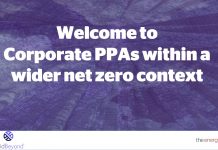 After a period of relatively low commodity costs, we have started to see wholesale costs rise again in recent weeks. In an ever-changing market, will a fixed or a flexible approach deliver the best results for businesses, asks Inenco in this sponsored post
After a period of relatively low commodity costs, we have started to see wholesale costs rise again in recent weeks. In an ever-changing market, will a fixed or a flexible approach deliver the best results for businesses, asks Inenco in this sponsored post
In 2018, commodity costs peaked at prices we hadn’t seen for almost two years, pushing energy bills up for many organisations. Over the past few months, we have seen wholesale costs fall to relatively low levels – but now they are beginning to climb again, which means businesses should act now to optimise their approach to energy procurement.
Can businesses risk being flexible?
The wholesale market looks set to remain volatile, particularly as Brexit uncertainty looms, which can make it difficult for businesses to decide on their optimum approach to procurement. At Inenco, we’re often asked, “Should my business opt for a fixed or a flexible approach in the current market?”
There is no one-size-fits-all answer to this question – the ideal strategy will depend on your business’s unique requirements. With wholesale costs rising once again, organisations may be tempted to lock themselves into a fixed procurement contract while prices are still relatively low, in order to avoid further cost rises.
However, we would encourage all businesses to consider whether a flexible approach to procurement could deliver the best results for them. Some organisations might be deterred from exploring flexible products because they see flexible contracts as riskier than fixed contracts – but this is a common misconception.
What’s your appetite?
Your organisation’s appetite for risk is therefore a key consideration when deciding on the best procurement option for your business – but bear in mind that neither fixed nor flexible contracts are without risk. With fixed price contracts, a risk premium is built into your contract, which means that you will pay more than cost for the energy you use.
As the prices you pay in a flexible contract depend on the market, there is a risk that if commodity costs continue to rise, you could find you’re paying more than if you had fixed. But in reality, many businesses in fixed contracts open themselves up to risk by not fixing their contracts until close to their renewal date, leaving them with little option but to opt for the current market prices. Flexible contracts, on the other hand, allow you to buy at the right time.
External support can make a real difference when you’re choosing a procurement strategy – especially if you choose a flexible approach, which requires multiple buying decisions. Inenco’s procurement experts have years of experience in the industry, along with a complete view of market influences, from commodity markets to long-range weather forecasting.
With this insight on hand, you can realise the benefits of a flexible strategy at a level of risk that’s acceptable to your business – visit www.inenco.com/experts to find out more.



